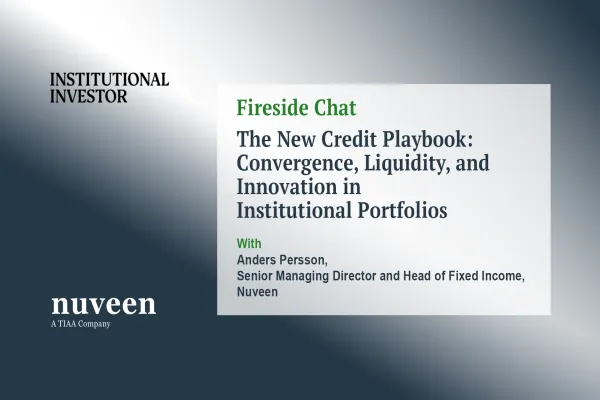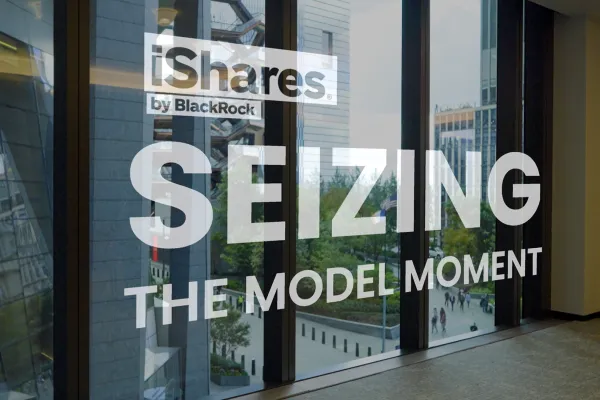Valiant Capital Partners has been on a tear since “Liberation Day.”
In just the first 15 days of April alone, the Tiger Grandcub headed by Chris Hansen was up a net 9 percent in its public markets portfolio, bringing its net gain for the year to 13 percent, according to its first quarter client letter obtained by Institutional Investor.
“We were up for the month prior to the sharp rally on April 8 when the administration delayed tariffs for 90 days,” Hansen told clients.
On Monday, stocks fell sharply, as tariffs worries continued and as President Trump renewed threats to fire Jerome Powell, head of the Federal Reserve. The brutal selloff began when Trump announced sweeping tariffs on April 2, followed by a rout in the bond markets.
In the first quarter when Valiant was up 3.4 percent, it lost 14.5 percent on its long positions but made 17 percent on its shorts and 2.4 percent from macro, according to the letter. “However, after the… drawdown in April, our shorts and macro hedges really kicked in, more than offsetting the decline in our longs,” Hansen stressed.
For the year through April 15, Valiant lost about 12.4 percent from its long positions but it has now made 23.5 percent from its shorts and 4.9 percent from its macro book.
“There are a couple of things that are clear to us,” Hansen wrote on what he calls the uncertainty invoked in the Trump Administration’s trade policies and its potential impact on corporate earnings and implications for equity valuations.
“The first is that IF followed through with (and that is a big if given the administration’s shifting tactics), the tariffs on China and baseline 10 percent tariffs on other countries would severely impact global supply chains in ways that are highly uncertain and unpredictable,” he elaborated. “They would also invariably feed through inflation and consumer and corporate inflation expectations and behavior are already anticipating this.”
More significantly, Hansen says, is the chaos that the tariff uncertainty is creating for companies. “From commodities to component parts, to finished goods, to services, global supply chains are so complex and interlinked it is natural for most companies to pause and try to evaluate the situation before they commit to CAPX/budgets – and if anything, they are likely to pull back on spending and hiring until they have better insight into what permanent policies will look like,” he elaborated.
Hansen added that this is also mostly true for consumers. He says they are likely to buy cars and other durable goods where they see tariffs coming but are also likely to pull back on discretionary spending on things like travel, dining, and luxury goods until they have more certainty surrounding the impact of inflation and their own jobs in a recession.
“But most important is the fact that the global status quo of the last three decades of free trade has been turned on its heads,” Hansen asserted. “And many of our former economic and strategic/military allies are questioning the implications of our current policies and our historic relationships with them. I am not a political scientist or historian, but I think it’s safe to say that this is a massive shift in geopolitics that is likely to have significant and long lasting economic and strategic implications.”
In any case, during the selloff, Valiant added to its “high conviction longs,” covered shorts “where the risk reward grew unfavorable” and stuck with or added to shorts it “believed will/may collapse into the abyss during a recession.”
Ahead of the tariffs, Valiant also “significantly added to its credit hedges,” explaining they are a low-vol and cheap way to add protection to the portfolio. “This bet obviously proved prescient as our credit hedges have significantly added to performance YTD and served their purpose of being an economic hedge and thus hedge to our long positions,” Hansen explains.
Valiant has also covered almost all of its U.S. equity put positions, such as the S&P 500, Invesco QQQ Trust and the VanEck Semiconductor ETF. “With volatility at extreme levels, the cost of this ‘insurance’ is far too high and we have been fortunate to be selling our put positions into this vol spike as a result,” Hansen explained. “And while we have very little equity put options left outside of our Nifty hedges (India), given our credit hedges and the quality of our short book, we feel really good about our ability to protect capital if the market dislocates further.”







